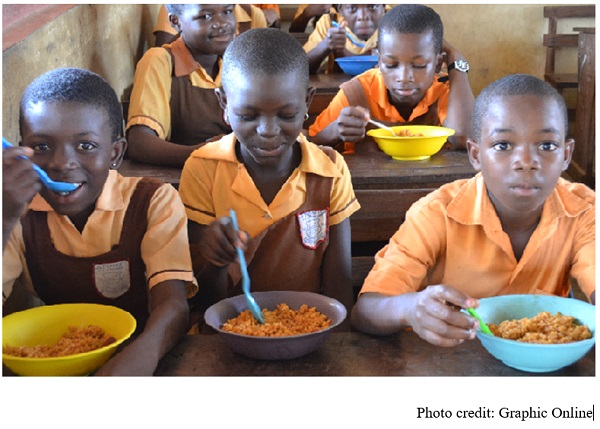
Establish permanent source of funding for social interventions – Report
A report on the expectations of the electorates ahead of the 2020 general elections has found that most Ghanaians want the state to establish a dedicated source of funding to finance social interventions such as the Capitation Grant, the National Health Insurance Scheme (NHIS), the School Feeding Programme and grants disbursed to persons with disabilities.
People surveyed for the report said that source of funding would help make the social interventions sustainable, stronger and capable of reaching a larger section of the vulnerable in society.
It will also increase the amount of grants that were earmarked and disbursed to beneficiaries, the report, dubbed the Citizen's Manifesto, said.
An initiative of Send Ghana and other non-governmental organisations (NGOs) and civil society organisatons (CSOs), the Citizen’s Manifesto aimed to align the expectations of the electorates with the policies and programmes of manifestos developed by the various parties to seek the mandates of Ghanaians.
Read: Abusuapanin's (Family Head's) Manifesto!'
It then compared the expectations of those surveyed against the proposals of the ruling New Patriotic Party (NPP) and the main opposition National Democratic Congress (NDC) to see which among the two proposed policies closer to the demands of the electorates.
Legal regime
Beyond the need for a dedicated source of funding, the report also found that most Ghanaians wanted the country to develop a legal framework to guide introduction and implementation of social intervention programmes.
They contended that such a law would establish eligibility criteria, regularise the social intervention programmes and streamline them into sustainable initiatives that satisfied the aspirations of the country and the citizens.
It also appealed to the Ministry of Gender, Children and Social Protection (MoGCSP) and National Commission for Civic Education (NCCE) to work closely together to enlighten citizens on available social protection interventions and eligibility criteria.
Parties’ positions
On proposals of the two leading parties on the need for a dedicated funding source for social protection schemes, the report said both parties had reflected the demand and the expectations of citizens in their manifestos.
According to the report, the NPP had proposed to mainstreamed social protection measures into the operations metropolitan, municipal and district assemblies (MMDAs).
It said the party sought to achieve this by using, at least five per cent of local revenue for vulnerable and disadvantaged households to ensure sustained finance for social protection.
On the other hand, the report said the NDC promised to strengthen the institutions created to coordinate social protection at all levels, build a more efficient system for social protection delivery and ensure sustained financing of social protection schemes.
It also pledged to increase access and to enhance targeting of vulnerable groups as beneficiaries of social protection by completing the Ghana Household Registry, the report added.
It said the party further pledged to ensure sustained finance for social protection.
Aged Persons Bill
On the legal framework for social protections, the report said none of the parties reflected the demand in their manifestos.
It, however, said the NDC had promised to introduce other policies that were closer to the expectations of the electorates.
It mentioned the promises to include a commitment to strengthen the legal framework by passing the Social Protection and the Aged Persons bills to take care of the vulnerable and marginalised groups and the continued strengthening of the legal and policy framework for the protection of the rights of women, children and persons with disabilities and vulnerable persons.